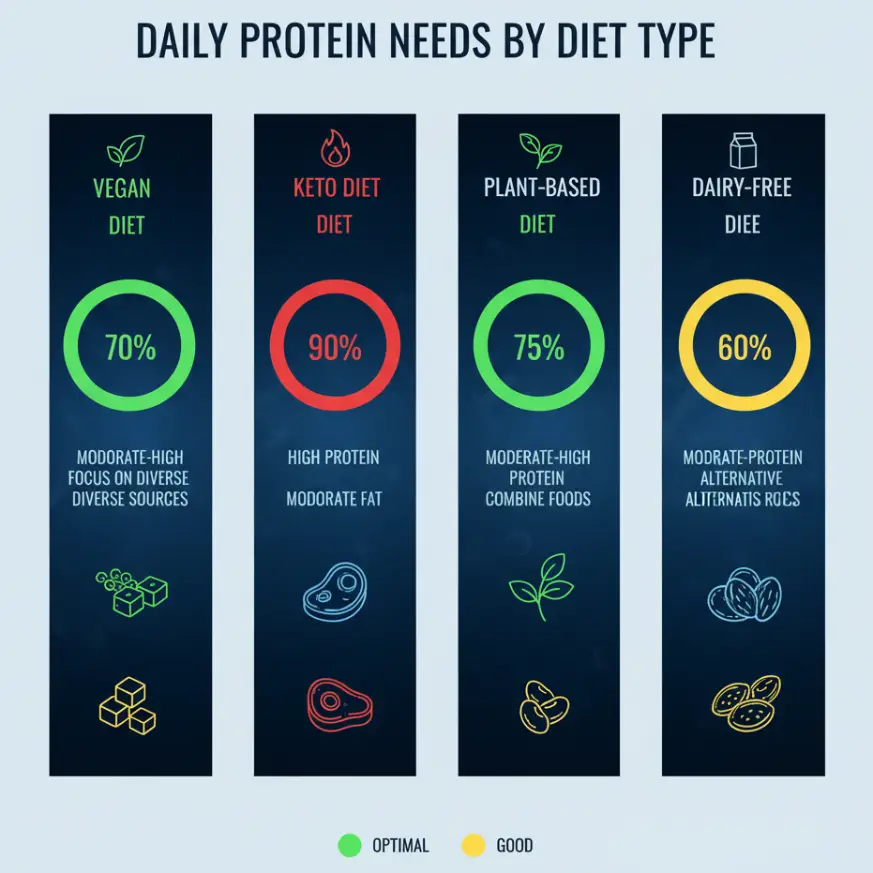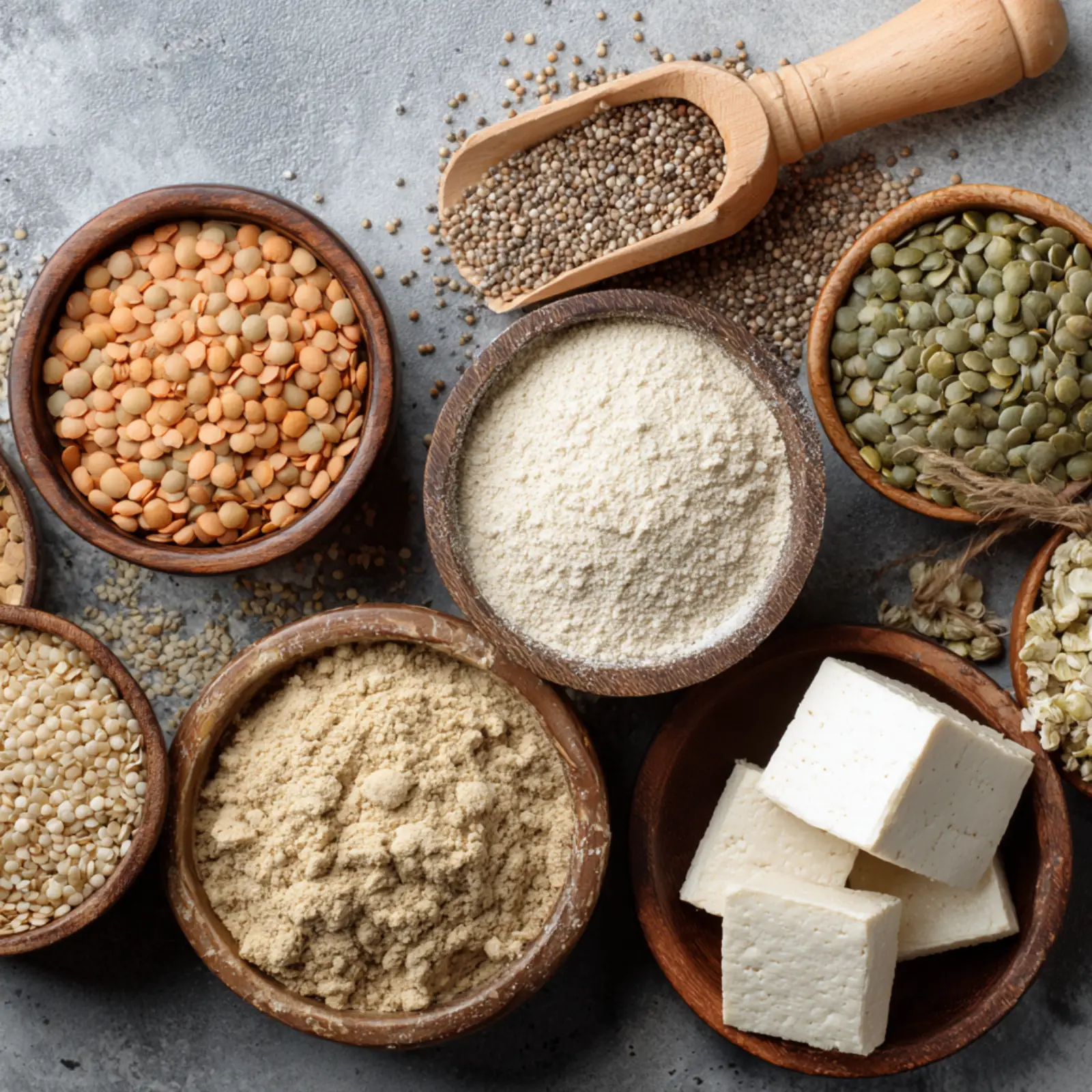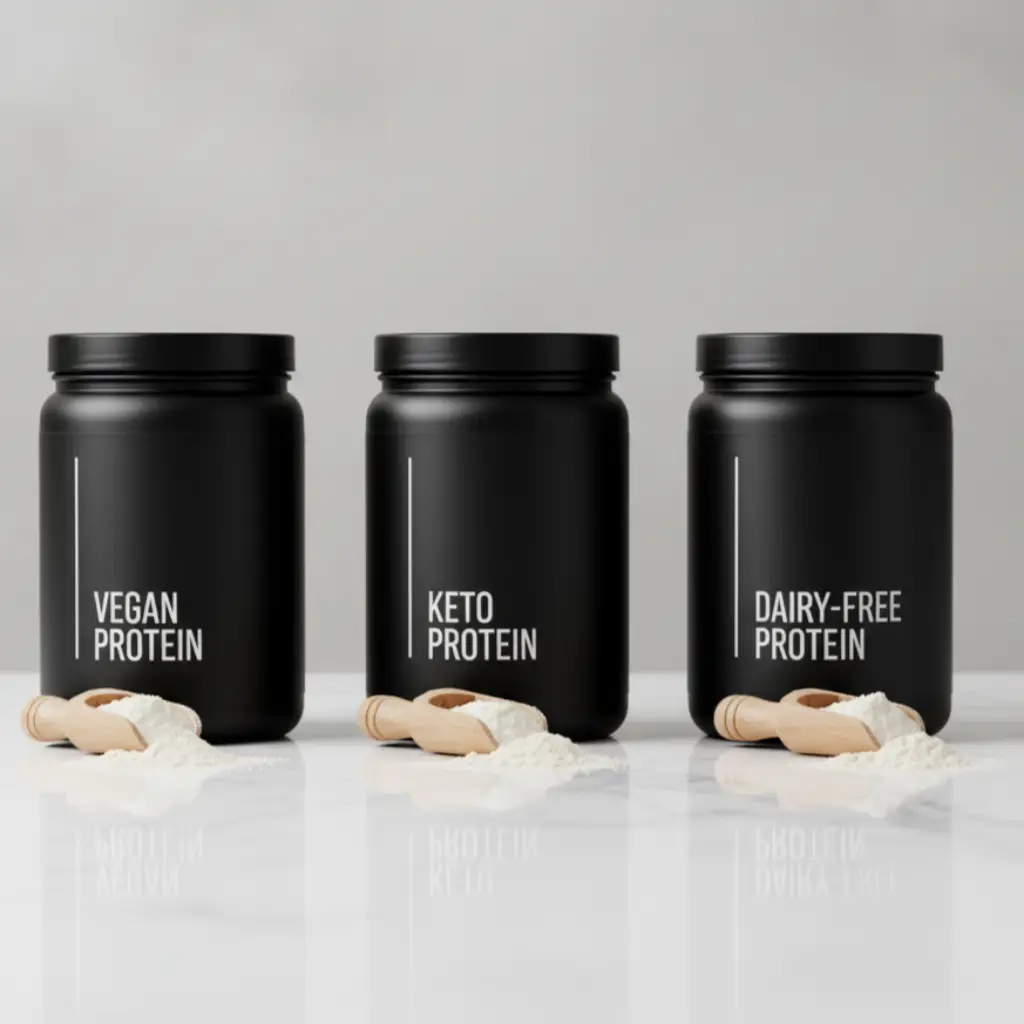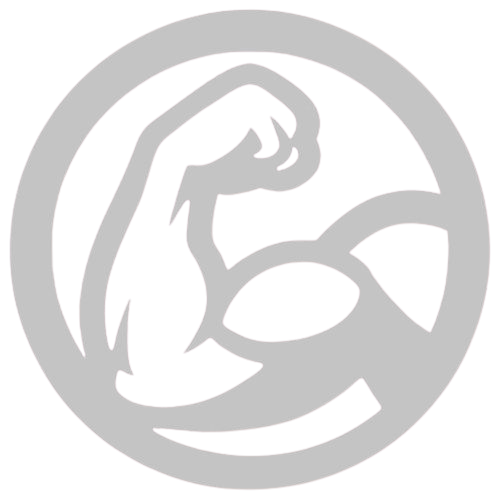Protein matters in every diet. Whether you follow vegan, keto, plant-based, or dairy-free nutrition, your body relies on protein for recovery, growth, and long-term health. The challenge is that different diets approach protein in unique ways, and not all protein sources fit every eating style. Luckily, with the right mix of whole foods and smart supplement choices like vegan protein powder, keto protein powder, or dairy-free protein, anyone can meet their needs. This guide breaks down how to get enough protein across diets while staying practical, evidence-based, and results-focused.

Table of Contents
Understanding Protein Needs Across Diets ( Protein for Different Diets )
Why Protein Is Essential for Every Body
Protein provides amino acids, which are the building blocks of muscle, hormones, enzymes, and tissues. Without enough protein, recovery slows, strength declines, and overall performance suffers. Research consistently shows that active individuals need more than the bare minimum. For most, this equals 1.6–2.2g per kilogram of body weight per day.
➡️ Read more: How Much Protein Do You Need?
Protein Quality: Animal vs. Plant-Based Protein
Animal proteins contain all essential amino acids in high bioavailability. Plant-based protein varies, with some sources low in lysine or methionine. However, combining different plant foods (like beans with rice) creates a complete profile. Advances in plant-based protein powders also help match the amino acid profile of whey.
➡️ Compare more: Whey vs Plant Protein
Vegan Protein Sources
Whole Food High-Protein Vegan Options
Vegan diets rely on plant protein, and variety is key. Great whole food sources include lentils, chickpeas, tempeh, tofu, seitan, quinoa, and edamame. These foods provide fiber and micronutrients along with protein.
Vegan Protein Powder for Convenience
When time is limited, vegan protein powder becomes a reliable option. Common choices include pea, soy, hemp, rice, and mixed blends. They digest well, support muscle recovery, and help close nutrient gaps.
➡️ See guide: Best Protein Powder for Beginners

Keto-Friendly Protein Choices
Protein on Keto vs Standard Diets
Keto diets focus on high fat, moderate protein, and very low carbs. Protein intake typically ranges from 20–25% of daily calories. Too much protein may kick some out of ketosis, so careful tracking is needed.
Keto Protein Powder and Whole Foods
Keto protein powder options include egg white isolate, beef protein isolate, and whey isolate (which is very low in carbs). Whole food choices like salmon, chicken thighs, and sardines also fit keto well.
Plant-Based Protein in Daily Nutrition
Plant-Based vs Vegan – Key Differences
Plant-based diets emphasize mostly plants but can still include small amounts of animal products. Vegan diets exclude all animal foods. Both can use dairy-free protein powders like pea, hemp, or soy.
Plant-Based Protein Powder Benefits
Plant-based protein powders often contain fewer allergens, less lactose, and better digestion for many people. Many blends combine multiple plants to form complete amino acid profiles.
➡️ More insights: Best High Protein Foods vs Supplements
Dairy-Free Protein Options
Why Choose Dairy-Free Protein?
Some avoid dairy due to lactose intolerance, allergies, or ethical concerns. Others prefer dairy-free for environmental reasons.
Best Dairy-Free Protein Powders
Top dairy-free options include pea, soy, hemp, pumpkin seed, and rice protein. Blends are often superior since they cover missing amino acids.
Protein for Weight Loss vs Muscle Gain
How Protein Supports Fat Loss
Protein increases satiety, reduces cravings, and boosts calorie burn through the thermic effect of food. Eating high-protein meals improves compliance with fat loss diets.
➡️ Related read: Protein Timing and Recovery
Protein for Muscle Growth Across Diets
For muscle gain, higher protein intake (closer to 2.0–2.2 g/kg) is best, especially during resistance training. Both vegan protein powder and keto protein powder can be effective if total intake is met.
➡️ Full breakdown: Protein for Weight Loss vs Muscle Gain
Common Protein Myths in Dieting
Busting the “Too Much Protein Damages Kidneys” Myth
Healthy individuals have no evidence-based risk of kidney damage from high protein diets. Concerns mostly apply to pre-existing kidney disease.
Myths About Vegan and Keto Protein
- Myth 1: You can’t build muscle on vegan diets. (Research shows equal gains with plant protein when intake is sufficient.)
- Myth 2: Keto requires very high protein. (In reality, keto is moderate protein and high fat.)
➡️ More here: Protein Myths Debunked
Practical Tips for Choosing the Right Protein Powder
How to Read Protein Labels
Check the protein per serving, ingredient list, sweeteners, fillers, and third-party certifications. Avoid products with excessive gums or proprietary blends.
➡️ Learn step-by-step: How to Read Protein Supplement Labels
Best Protein Powder Recommendations for Each Diet

- Vegan: Soy, pea, or blended powders
- Keto: Whey isolate, egg white, beef protein
- Plant-based: Pea + rice blends
- Dairy-free: Hemp, pumpkin seed, pea
| Diet | Top Protein Sources |
|---|---|
| Vegan | Lentils, tofu, tempeh, quinoa, vegan protein powder |
| Keto | Eggs, salmon, beef isolate, whey isolate |
| Plant-Based | Pea protein, soy, hemp, chia seeds |
| Dairy-Free | Pumpkin seed protein, hemp, rice protein |
Conclusion
Protein adapts to every diet. Vegan, keto, plant-based, and dairy-free approaches all offer reliable options through whole foods and powders. The key is understanding daily needs, combining smart sources, and choosing supplements that match your lifestyle. With practical application, you can support fat loss, muscle gain, or overall health while sticking to your preferred diet.
FAQs
What are the best vegan protein sources?
Beans, lentils, tofu, tempeh, quinoa, seitan, and vegan protein powder.
What are the top 10 vegan protein foods?
Lentils, chickpeas, black beans, seitan, tofu, tempeh, quinoa, hemp seeds, chia seeds, pumpkin seeds.
Can you follow a vegan keto diet?
Yes. Focus on avocado, coconut, nuts, seeds, and vegan keto protein powder.
What are some vegan keto recipes?
Examples: tofu scramble with avocado, seitan stir-fry with coconut oil, chia pudding with almond milk.
What’s the best vegan protein powder?
Pea protein or blends like pea + rice provide complete amino acids.
Is plant-based protein powder good for muscle growth?
Yes, when protein intake meets training needs.
What are examples of high-protein vegan meals?
Lentil curry, tempeh tacos, tofu stir-fry, quinoa bowls.
How do I choose the best vegan protein powder?
Look for third-party tested powders with 20g+ protein per serving and minimal additives.
Visit my Instagram account for more
